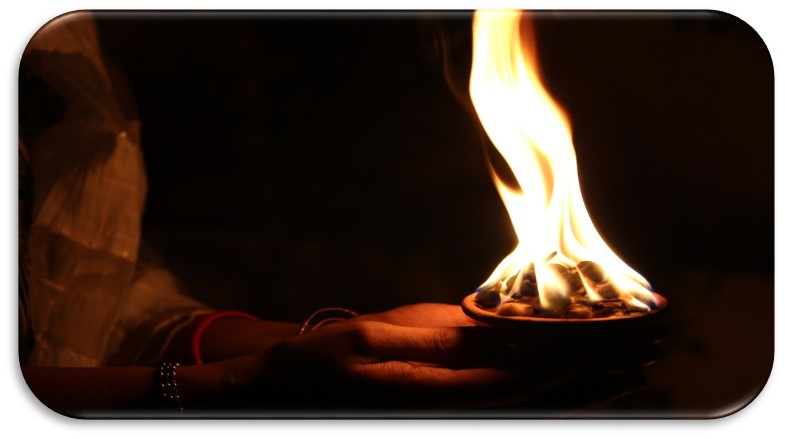Training in cultural management, history and possible futures

DOI
https://doi.org/10.25267/Periferica.2021.i22.26Info
Abstract
Now knowledge is no longer (only) a mere transmission of the knowledge of others, it is a joint and shared construction between teachers, experts in the profession, academic-theorists and students. For this knowledge it is necessary to resort more to scientific research capable of incorporating contents that directly affect the development of the discipline that we are building. These investigations must provide us with the internal logic of the pedagogical model. The new pedagogy has to incorporate contexts, times, actors and technologies typical of culture and its manifestations, which are as changeable as the future of the human being is. A pedagogy that contemplates the changes that have developed so vertiginously in recent years, but that also accounts for a past that we have to know and master, to understand those roots without which we cannot grow.
Keywords
Downloads
How to Cite
License

This work is licensed under a Creative Commons Attribution-NonCommercial-NoDerivatives 4.0 International License.

Este obra está bajo una licencia de Creative Commons Reconocimiento-NoComercial-SinObraDerivada 4.0 España.
References
Facal, R. L. (2020). HISTODIDÁCTICA. Obtenido de http://www.ub.edu/histodidactica/index.php?option=-com_content&view=article&id=156:didactica-para profesorado-en-formacion-por-que-hay-que-aprender-a-ensenar-ciencias-sociales&catid=15&Itemid=103
Fair, H. (10 de 12 de 2013). Aportes para la construcción de una ciencia:. (U. ICESI, Ed.) CIES Estudios transdisciplinares, 23. Obtenido de https://doi.org/10.18046/retf.i4.1706
Martinell, A. (2001). https://oibc.oei.es/. (C. U. Cooperación, Ed.) Obtenido de https://oibc.oei.es/uploads/attachments/75/La_Gestion_Cultural_ _Singularidad_profesional_y_perspectivas_de_futuro.pdf
Ordine, N. (2013). La utilidad de lo inútil. Barcelona,
España: Acantilado.
Ordine, N., & Gianotti, F. (22 de Agosto de 2021). Un dialogo sobre ciencia y cultura, a la sombra del acelerador de partículas del CERN. (D. E. País, Ed.) El País Semanal. Obtenido de https://elpais.com/eps/2021-08-21/un-dialogo-sobre-ciencia-y-cultura-a-la-sombra-del-acelerador-de-particulas-del-cern.html
Quinquer, D. (2004). EDUCREA. Obtenido de https://educrea.cl/estrategias-metodologicas-ensenar-aprender-ciencias-sociales-interaccion-cooperacion-participacion/
Sijie, D. (2001). Balzac y la joven costurera china. (M. S.Crespo, Trad.) Barcelona, España: Salamandra.
Notas
Cantar de los Cantares (hebreo ש ִׁריה ַש ִׁרי ִםי , ּ Shir Hashirim), conocido también como Cantar de Salomón o Cantar de los Cantares de Salomón, es uno de los libros del Antiguo Testamento y del Tanaj. El Cantar es un libro único en la Biblia y no encaja en ninguno de los principales géneros bíblicos: no se ocupa ni de la Ley ni de los profetas, no es propiamente un libro sapiencial ni examina tampoco la alianza, y ni siquiera se ocupa de Dios. En el Cantar, los amantes se encuentran en plena armonía, y sienten un deseo mutuo y se regocijan en su intimidad sexual. https://es.wikipedia.org/wiki/Cantar_de_los_Cantares
(Martinell, 2001)
La grafía recomendada para el nombre abreviado de la enfermedad por coronavirus es COVID-19, con mayúsculas, ya que se trata de la sigla inglesa de CORONAVIRUS DISEASE, ‘enfermedad del coronavirus’. Dado que contiene el sustantivo ENFERMEDAD en su forma inglesa, su género es femenino (LA COVID-19, mejor que EL COVID-19). https://www.fundeu.es/recomendacion/covid-19-nombre-de-la-enfermedad-del-coronavirus/
4. m. Elevada categoría, excelencia o exquisitez que posee algo por la calidad de las materias primas empleadas en su fabricación, sus altas prestaciones o servicios, https://dle.rae.es/lujo






